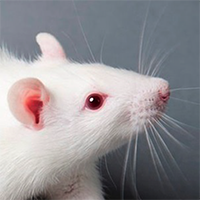The effect of melanin on the proteolytic potential of blood under alkali esophageal burn

Submitted: September 26, 2019
Accepted: May 1, 2020
Published: August 5, 2020
Accepted: May 1, 2020
Abstract Views: 589
PDF: 481
Publisher's note
All claims expressed in this article are solely those of the authors and do not necessarily represent those of their affiliated organizations, or those of the publisher, the editors and the reviewers. Any product that may be evaluated in this article or claim that may be made by its manufacturer is not guaranteed or endorsed by the publisher.
All claims expressed in this article are solely those of the authors and do not necessarily represent those of their affiliated organizations, or those of the publisher, the editors and the reviewers. Any product that may be evaluated in this article or claim that may be made by its manufacturer is not guaranteed or endorsed by the publisher.

 https://doi.org/10.4081/jbr.2020.8577
https://doi.org/10.4081/jbr.2020.8577



